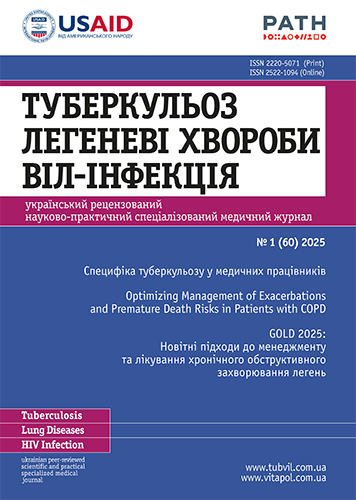Філософські аспекти танатології в паліативній допомозі: Ad Impossibilia Nemo Obligatur
DOI:
https://doi.org/10.30978/TB2025-1-83Ключові слова:
смерть; паліативна допомога; філософія паліативної допомоги; танатологія.Анотація
The data from literary sources have been summarized to highlight contemporary concepts of providing palliative care and understanding the thanatological aspects of the palliative care philosophy. The possibilities of forming an alternative philosophy of palliative care are considered.
Objective of this analysis was to considering the philosophical aspects of thanatology in the alternative philosophy of palliative care.
The alternative philosophy of palliative care prompts many ethical and philosophical questions about the future of palliative care itself. Thanatological aspects of it have potential for solving theoretical and practical problem of contemporary palliative care not only in sphere of relief of the patient’s suffering, but preparing the patient for death. Objectively, this applies to the entire process of palliative care, not only in the terminal stages, and includes the patient's social environment in this process, focusing attention on the problem of not physical but social death. The one of the key issue of palliative care is not preparing patient to the death only, but first of all answer to the question about death in itself. This is a philosophical problem that have the most direct connection to ontology and metaphysic, clearly outlines the external of the entire quintessence of human existence. The alternative philosophy of palliative care is directed to offering an opportunity to explore cultural, social, and personal aspects of loss, death, dying, and grief; it emphasizes effective support and collaboration with community-based services, includes topical issues in thanatology, palliative care, bereavement theories, social justice and diversity, ethical issues, social and political discourse.
Посилання
Agazzi E. The philosophy of palliative care. Bioethics Update. 2018;4:87-91. http://doi.org/10.1016/j.bioet.2018.06.001.
Becker E. The Denial of Death. Free Press; 1997. 336 p.
Bishop J. Anticipatory Corpse, The: Medicine, Power, and the Care of the Dying (Notre Dame Studies in Medical Ethics and Bioethics). University of Notre Dame Press; 2011. 430 p.
Bradley B. Well Being and Death. Oxford: Oxford University Press; 2009.
Bradley B. When Is Death Bad for the One Who Dies? Noûs. 2004;(38):1-28. http://doi.org/10.1111/j.1468-0068.2004.00460.x.
Calling for a Palliative Care Culture. ESMO Press Release. 2012.
Cherny N, Fallon M, Kaasa S, Portenoy R, Currow D. Oxford Textbook of Palliative Medicine, 5th Edn. Oxford: Oxford University Press; 2015.
Cox G, Thompson N. Death and Dying: Sociological Perspectives. Abingdon: Taylor & Francis; 2020. 212 p.
Creagan E, Wendel S. Farewell: Vital End-of-Life Questions with Candid Answers from a Leading Palliative and Hospice Physician. Write On Ink Publishing; 2018. 277 p.
Dzierżanowski T, Kozlowski M. Personal fear of their own death and determination of philosophy of life affects the breaking of bad news by internal medicine and palliative care clinicians. Arch Med Sci. 2019;18(6):1505-12. http://doi.org/10.5114/aoms.2019.85944.
García-Baquero Merino M. Palliative care: taking the long view. Frontiers in Pharmacol. 2018;9:1140-5. http://doi.org/10.3389/fphar.2018.01140.
Graven V, Timm T. Hospice philosophy in practice — Toward an authentic death. Omega (Westport). 2021 Jun;83(2):325-342. http://doi.org/10.1177/0030222819852850.
Herzog E. Psyche and Death: Death-Demons in Folklore, Myths, and Modern Dreams. Spring Publications; 2001. 232 p.
Kant Immanuel. Träume eines Geistersehers, erläutert durch Träume der Metaphysik. CSIPP; 2013. 64 s.
Klitzman R. «Patient-time», «doctor-time», and «institution-time»: Perceptions and definitions of time among doctors who become patients. Patient Educ Couns. 2006 Nov 27;66(2):147–155. http://doi.org/10.1016/j.pec.2006.10.005.
Krol P, Lavoie M. Beyond nursing nihilism: A Nietzschean transvaluation of neoliberal values. Nurs Philos. 2014 Apr;15(2):112-24. http://doi.org/10.1111/nup.12025.
Kubler-Ross E. Death Is of Vital Importance: On Life, Death, and Life After Death. Station Hill Press; 1995. 164 p.
Kübler-Ross E. On Death and Dying: What the Dying Have to Teach Doctors, Nurses, Clergy and Their Own Families. Scribner; 2014. 304 p.
McBride K. The Death Changing Experience: An Oddball’s Guide to Creating a Life and Death Plan. Independently published; 2023. 331 p.
McNamara B, Waddell C, Colvin M. The institutionalization of the good death. Soc Sci Med. 1994 Dec;39(11):1501-8. http://doi.org/10.1016/0277-9536(94)90002-7.
Pihlström S. Controlling Death: Philosophical Thanatology Meets Cultural Expectations. In Mapping the Perimeter of Death and Dying. Inter-Disciplinary Press; 2015. P. 13-20.
Portmore D. Desire fulfillment and posthumous Harm. American Philosophical Quarterly. 2007;44:227-38.
Randall F, Downie R. The Philosophy of Palliative Care: Critique and Reconstruction. Oxford: Oxford University Press; 2006. 256 p.
Rome R, Luminais H, Bourgeois DA, Blais C. The role of palliative care at the end of life. Ochsner J. 2011 Winter; 11(4):348-52. PMID: 22190887. PMCID: PMC3241069.
Stillion J, Attig Th. Death, Dying, and Bereavement: Contemporary Perspectives, Institutions, and Practices. Springer Publishing Company; 2014. 428 p.
World Health Organization. WHO Definition of Palliative Care. 2018. https://www.who.int/cancer/palliative/definition/en/.
Zimmermann C, Rodin G. The denial of death thesis: sociological critique and implications for palliative care. Palliat Med. 2004;18:121-8. http://doi.org/10.1191/0269216304pm858oa.
##submission.downloads##
Опубліковано
Номер
Розділ
Ліцензія
Авторське право (c) 2025 Автори

Ця робота ліцензується відповідно до Creative Commons Attribution-NoDerivatives 4.0 International License.


